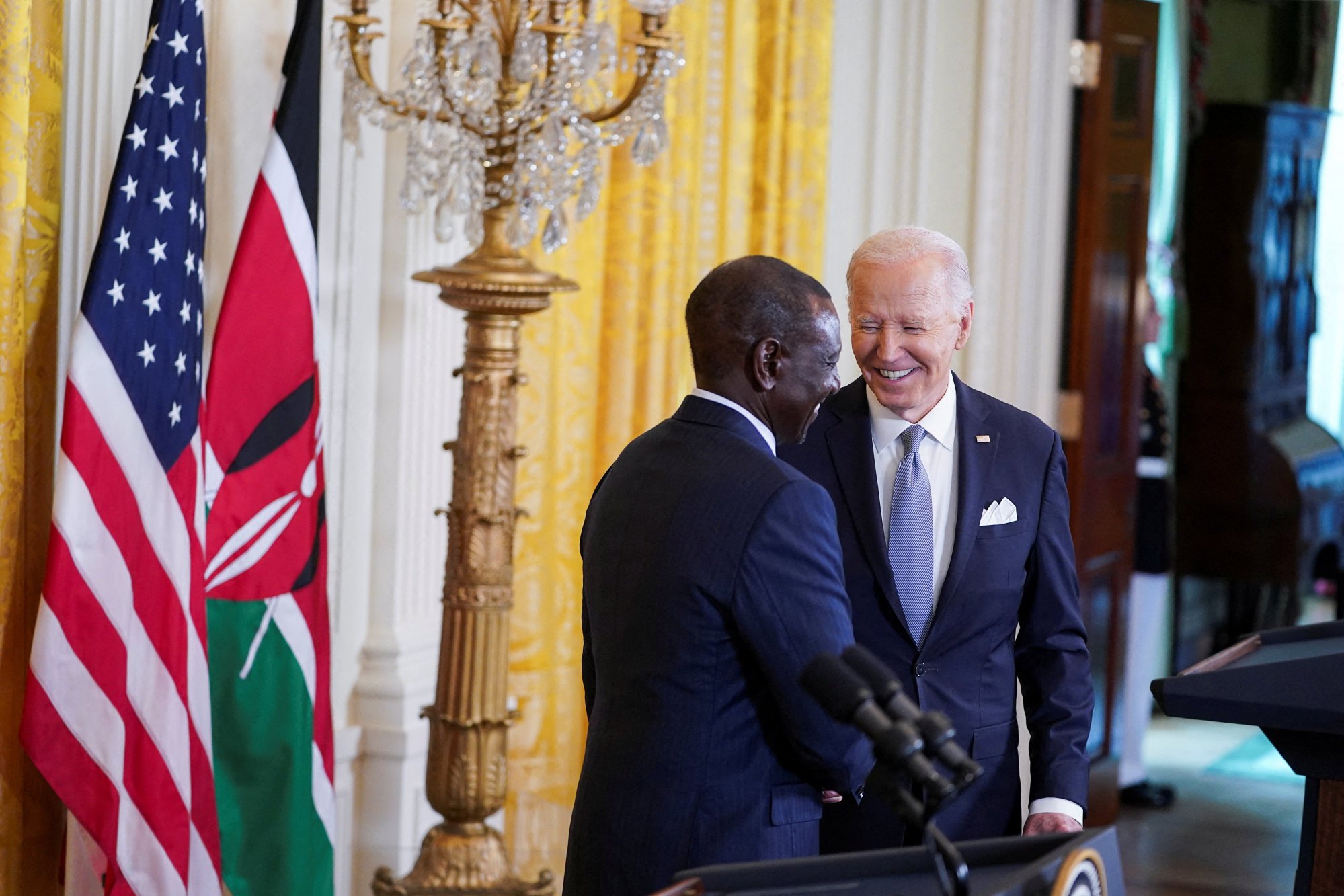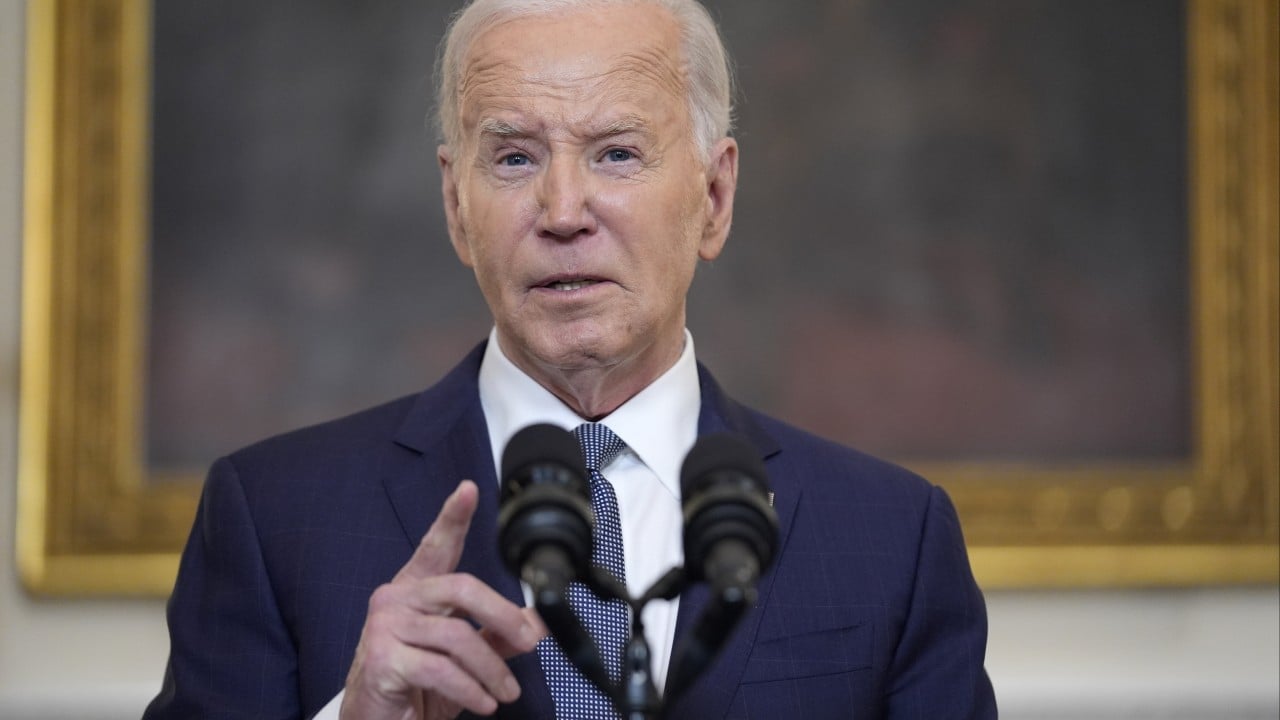People in nearly half of 34 countries disapprove of US President Joe Biden’s China policy, according to a recent survey by a leading non-partisan American think tank.
“A median of around four-in-10 approve of the way he is dealing with China and with the conflict between Russia and Ukraine,” the Pew Research Centre said of Biden, adding: “Publics are divided on his handling of climate change and global economic problems.”
The survey also found that Chinese President Xi Jinping and Russian President Vladimir Putin scored the lowest levels of trust among the five world leaders named in the questionnaire.
Respondents put the two allies at 24 per cent and 21 per cent, respectively, when asked if they were confident they would “do the right thing regarding world affairs”.
French President Emmanuel Macron tallied the highest rating on the trust question, at 44 per cent, followed by Biden at 43 per cent.
Meanwhile, 28 per cent voiced confidence in Donald Trump, the former US president and presumptive Republican presidential nominee in the coming American election.
The findings were based on a survey of more than 40,000 adults in 34 countries. It was conducted between January and May.
The countries encompass the Asia-Pacific region, Europe, Latin America, the Middle East, North America and sub-Saharan Africa. China and the US were not surveyed.
Respondents were also asked if they approved or disapproved of how Biden was handling major international concerns.
On Biden’s handling of China, Kenya was the only country with a clear majority of respondents expressing approval, at 56 per cent.
In late May – after the survey was concluded – Kenyan President William Ruto became the first African leader since 2008 to receive a state visit in Washington.

The lavish affair, widely seen as meant to counter Russia and China’s sway in Africa, included a “joint vision statement” on reducing the mounting debts of developing countries and the ensuing burden on African countries trying to grow their economies.
As for Asia, slightly more than half of respondents in Japan, the Philippines and South Korea approved of Biden’s dealings with China. Most people in Australia, Malaysia and Singapore disapproved.
Only 13 per cent of respondents in Turkey indicated approval of Biden’s approach towards China.
In April, the White House hosted the first US-Philippines-Japan summit for talks that covered their separate territorial disputes with China.
The three countries in a joint statement pledged to keep supporting one another amid Beijing’s “aggressive behaviour” by bolstering their defence coordination. Later that month, Manila and Washington staged major joint-naval drills in a show of force.
The Biden administration in recent years has made a concerted effort to build a network of allies through security blocs and mutual defence pacts, seeking to blunt what Washington views as a rising security threat posed by Beijing.
American concerns about the Asian giant have extended across the South China Sea, East China Sea and Taiwan Strait. Beijing has opposed Washington’s multilateral efforts, calling them “exclusive groupings for bloc confrontation”.
As for the Ukraine war, in six of the 12 Nato members surveyed, half or more people disapproved of Biden’s handling of the armed conflict that began with Russia’s invasion of its neighbour in 2022.
While Hungary stood out with 73 per cent of people dissatisfied, two-thirds of people in Poland and 57 per cent of people in the transatlantic security alliance’s newest member, Sweden, approved of Biden’s policy.
Poland, which borders both Russia and Ukraine, has taken in a large share of Ukrainian refugees fleeing the war.
Of the five global issues featured in the survey, it was Biden’s handling of the Israel-Gaza war that netted his lowest ratings.
In every surveyed country except Kenya, fewer than half of the respondents approved of his handling.
In Israel, 60 per cent of people said they disapproved of it.
Disapproval rates also ran high in countries with large Muslim populations, including Malaysia, Tunisia and Turkey.
The Washington-based think tank noted that its survey was conducted before Biden announced a proposal to end the war in late May.


